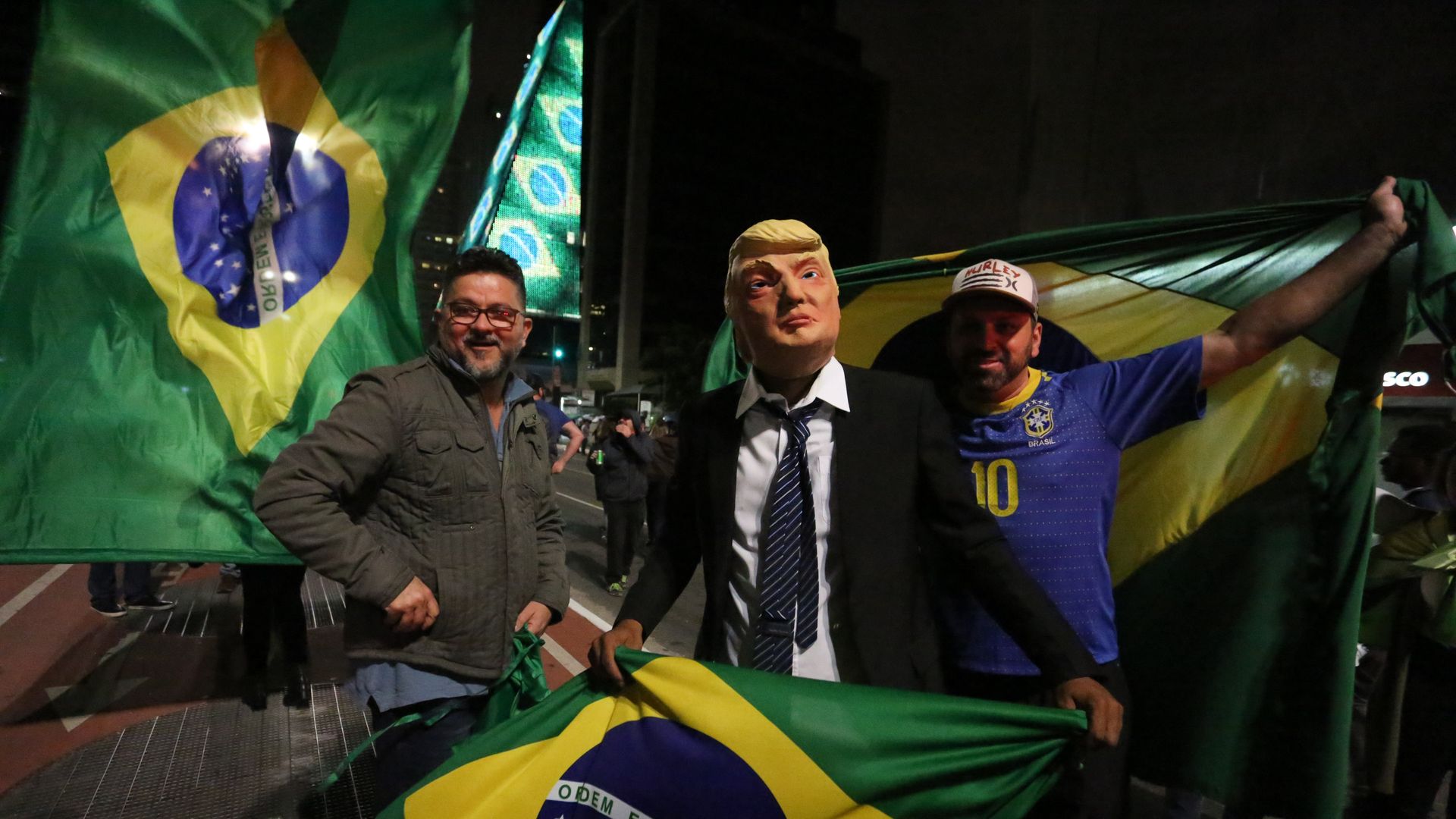In Bolsonaro, Bolton finds a dangerous ally
Add Axios as your preferred source to
see more of our stories on Google.

Supporters of Brazil's elected presidential candidate Jair Bolsonaro celebrating his victory in São Paulo, on October 28, 2018. Photo: Fabio Vieira/FotoRua/NurPhoto via Getty Images
In a vituperative speech about Latin America on Thursday, national security adviser John Bolton referred to the Cuban, Nicaraguan and Venezuelan governments as a “troika of tyranny” and their leaders as "the three stooges." Perhaps most notably, after making vague promises to pressure the three repressive regimes and announcing an imminent increase in sanctions on Venezuela, Bolton called Brazil's recently elected right-wing authoritarian, Jair Bolonsoro, a “like-minded” leader for the Trump administration.
Why it matters: There is a clear affinity between the demagoguery of Trump and Bolsonaro, who are often facilely compared, but the latter's is hardly the sort of liberal government that would make a good ally against the oppressive “triangle of terror.” In fact, as a growing body of political science research has argued, Bolsonaro’s approach is in line with the strain of anti-democratic populism that has sprung up in Turkey, Poland, Hungry, the Philippines and Venezuela under former President Hugo Chávez.
In those countries, leaders have tapped deep popular anger to run against what's perceived as a discredited, corrupt political elite. Once in office, they steamroll the checks and balances on executive power and undermine the independence and effectiveness of the government bureaucracy. As leaders from Italy’s Mussolini to Venezuela’s Chávez have shown, authoritarian populism knows no ideological bounds. Instead it shares a common disregard for limits on power, human rights and dissent.
Similarly, Bolsonaro, despite being a 27-year congressman, ran as an outsider, anti-system candidate. He promised to increase the armed forces' role in reducing crime and praises Brazil's former military dictatorship, objecting only that it did not go far enough in wiping out opponents. The former army captain has also denounced homosexuality, disparaged Brazilians of African descent and said a congressional colleague was too ugly to rape.
What to watch: We don’t know what will come of Bolton's seemingly empty threats about the troika tyrants having "met their match" and more sanctions, which he likely made to drive Florida’s Cuban-, Venezuelan- and Nicaraguan-American voters to the polls on Tuesday. Much of it will probably prove to be only campaign rhetoric, but in the meantime, let's hope that the administration exercises more caution with the avowed homophobic, misogynistic and militaristic strongman in Brazil.
Christopher Sabatini is an adjunct professor at Columbia University's School of International and Public Affairs, executive director of Global Americans and a non-resident fellow at Rice University's Baker Institute.
